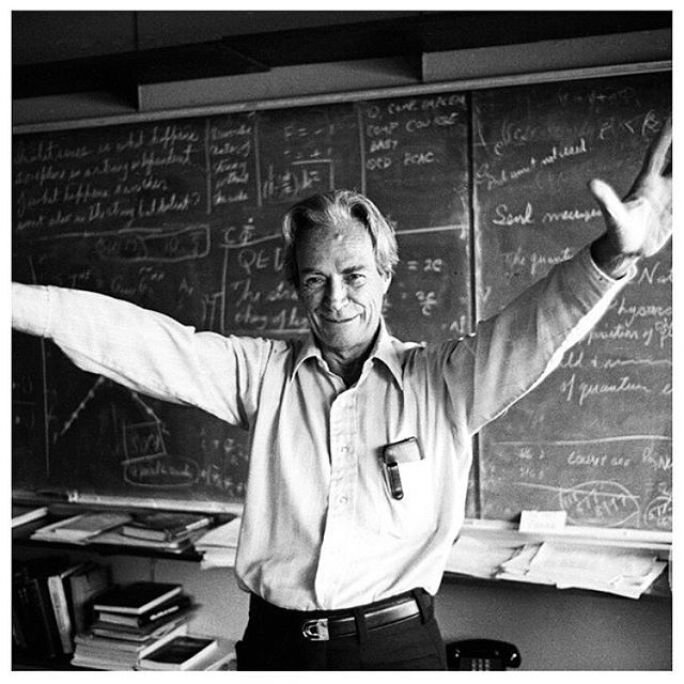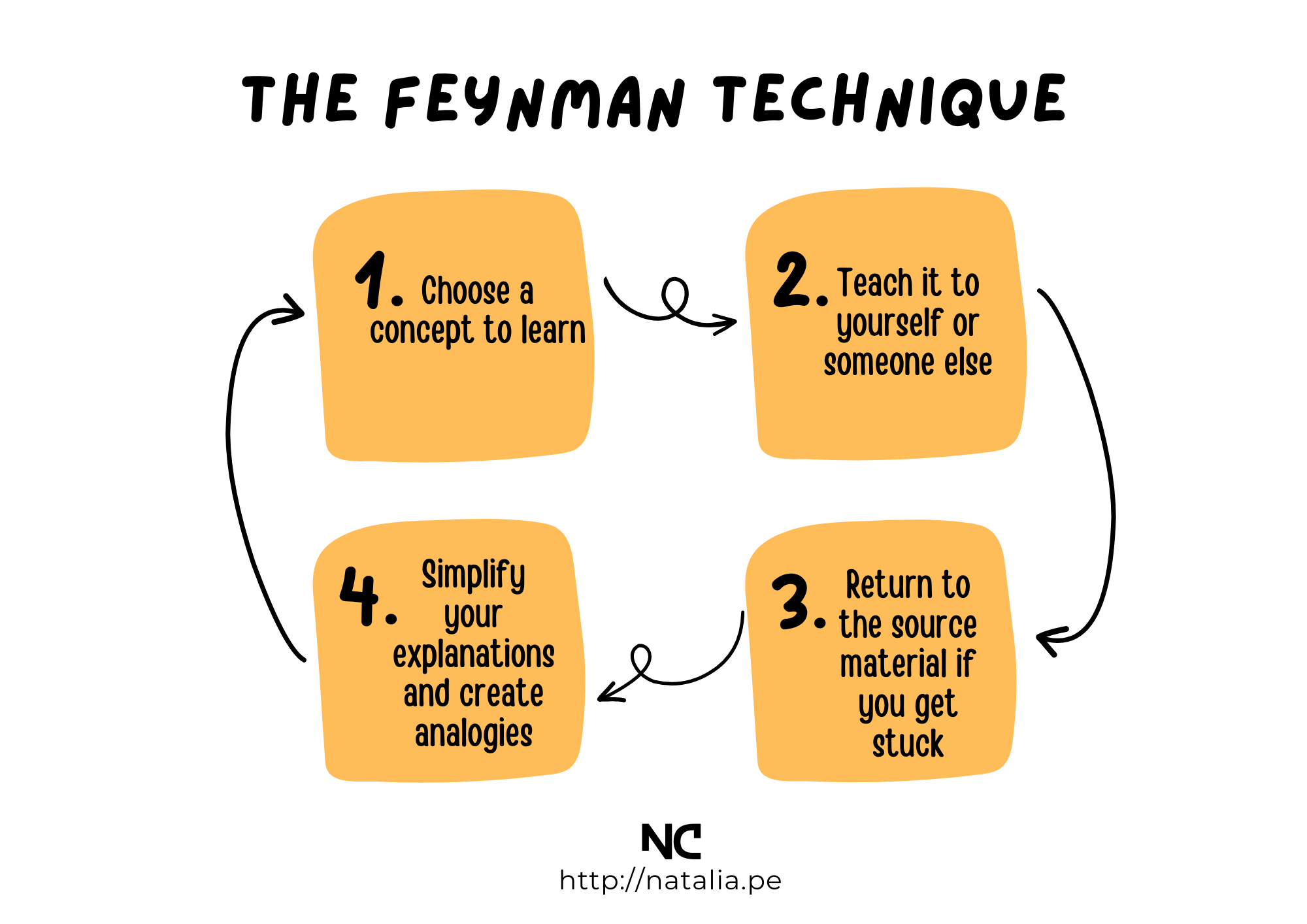Richard Feynman (11 May 1918 – 15 February 1988) was an incredible scientist. Known for his contributions to the development of quantum electrodynamics, Feynman received the Nobel Prize in Physics in 1965, sharing it with Julian Schwinger and Shin'ichirō Tomonaga for their independent work.
Feynman wasn’t famous just for being a world-class scientist; even more importantly, he was an amazing teacher. He leveraged the power of teaching to improve learning.
He did a series of lectures that are still available, which were for people who didn't specialize in physics. He was a great example of how one could explain things in a fun and interesting way to anyone. He used very simple concepts to explain how physics worked.
Despite his accomplishments, Feynman considered himself “an ordinary person who studied hard.” He believed that anyone was capable of learning with enough effort, even complex subjects like quantum mechanics and electromagnetic fields:
There’s no miracle people. It just happens they got interested in this thing, and they learned all this stuff. There’s just people. —Richard Feynman
He pushed himself to have a deep understanding. His approach to knowledge was always looking for different possibilities.
Throughout his work and life, Feynman provided insights into his process for considering complex concepts in the world of physics and distilling knowledge and ideas with fun and simplicity. Many of these observations about his learning process have been collected into what we now call “The Feynman Technique.”
The Feynman Technique is a four-step process for understanding any topic. This technique rejects automated recall in favor of true comprehension gained through selection, research, writing, explaining, and refining.
True understanding requires a more active process. The Feynman learning technique is a way to learn new concepts thoroughly by teaching them to others or at least pretending to.
The worthwhile problems are the ones you can really solve or help solve, the ones you can really contribute something to… No problem is too small or too trivial if we can really do something about it. —Richard Feynman

